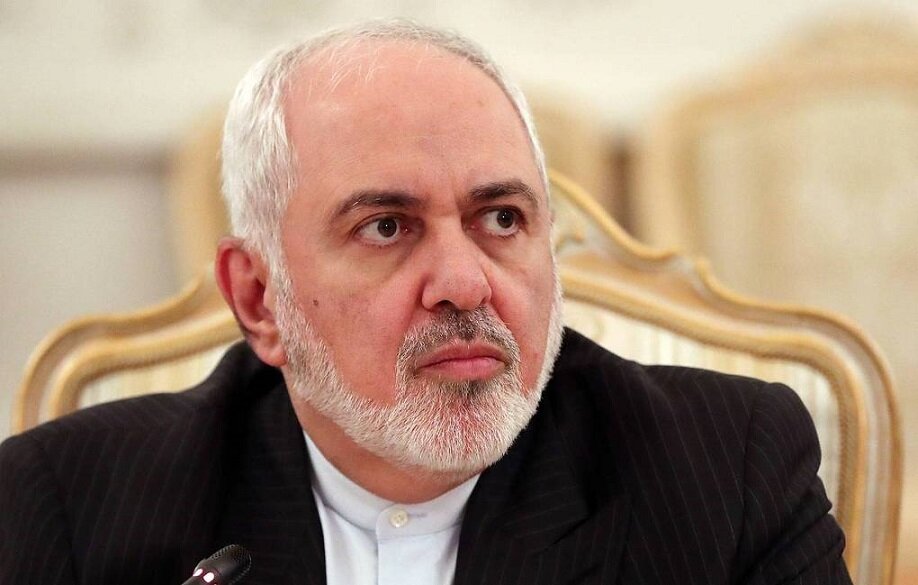Araghchi held ‘very good’ talks during regional tour: Zarif

TEHRAN – Foreign Minister Mohammad Javad Zarif has said his aide held ‘very successful’ talks during a regional tour that included several countries involved in the Nagorno-Karabakh war.
Seyed Abbas Araghchi, the deputy foreign minister for political affairs, has begun a regional tour of four capitals to help end the deadly war in the disputed region of Nagorno-Karabakh. He set off the tour by paying a visit to Iran-Azerbaijan border areas. From there, he went to Baku, Moscow, Yerevan, and finally Ankara.
During his tour, the deputy foreign minister presented an Iranian peace initiative to resolve the crisis in Nagorno-Karabakh through cooperation among five regional countries, namely Azerbaijan, Armenia, Russia, Turkey, and Iran.
“Mr. Araghchi went on this trip with an initiative that was discussed in our country and approved by the relevant authorities, and after visiting the border area, he held very good talks with various officials, especially with the President in Baku; with the officials of the Ministry of Foreign Affairs in Russia, with various officials, especially the Prime Minister of Armenia, in Yerevan, and with his counterpart in Turkey. He presented our country's initiative,” Zarif told the Islamic Republic of Iran Broadcasting (IRIB) news agency on Sunday.
According to Zarif, Iran’s initiative is intended to resolve the crisis and help withdraw occupying forces from occupied territories.
“We have been pursuing this since the beginning of the Nagorno-Karabakh crisis in consultation with the countries of the region, including the Republic of Azerbaijan and Armenia, Russia and Turkey,” said the foreign minister, noting that Iran believes that the countries in the region will bear the brunt of this war, and these countries can have the greatest impact on ending the war in the region.
He added, “In this context, we tried to achieve these goals and hold consultations without trying to compete with other existing mechanisms such as the Minsk Group. Unfortunately, in the last 30 years, the negotiations have not been successful, and these tensions have always existed, which are along our borders where civilians and people were threatened from both sides.”
The chief Iranian diplomat outlined some details of the Iranian initiative, saying it does not only seek to establish a temporary ceasefire but also seeks to resolve the conflict.
“One of the important points of our country's initiative is that it is not only seeking a temporary ceasefire but also a move towards resolving the conflicts based on a framework that begins with the declaration of commitment of both sides to a set of principles and then it continues with measures, especially the withdrawal of the occupying forces from all the occupied territories,” Zarif said.
Ensuring the people’s rights, establishing communication channels, creating a mechanism for countries of the region to monitor the implementation of the initiative are parts of the peace plan of the Islamic Republic of Iran to establish peace in the Nagorno-Karabakh region, according to Zarif.
The foreign minister said Iran is waiting for officials of Azerbaijan, Armenia, Russia, and Turkey to express their views on the Iranian initiative.
Zarif also said Iran is all but sure about the presence of terrorist forces in the Nagorno-Karabakh conflict, warning that Iran will not tolerate their presence.
“As for the terrorist forces, we are almost certain that they were present in the midst of the conflict, and we emphasized that this is not in anyone's interest. In recent and even earlier negotiations, we have informed the authorities of Azerbaijan and Armenia, as well as Russia and Turkey, that the Islamic Republic of Iran will not tolerate such a thing,” said the chief Iranian diplomat, adding that these terrorists are not present at Iran’s borders now, but the probability that they will be present at a distance from Iran’s borders is still high, and Tehran has seriously expressed this concern to both sides.
Iran has now held discussions with all the four countries that are one way or another involved in the Nagorno-Karabakh conflict. It remains to be seen whether these countries agree with the Iranian initiative.
Araghchi, who embarked on his tour as a special representative of the Iranian president, has pointed out that all the four countries involved in the Nagorno-Karabakh war – Azerbaijan, Armenia, Russia, and Turkey – have viewed the Iranian peace initiative as positive.
“We are waiting for a response from the four countries in a short time to complete it [initiative] in a way that is accepted by all and paves the way for resolving the crisis,” Araghchi said.
However, the deputy foreign minister stated that implementing the Iranian initiative is not an easy task.
“Immediately implementing the initiative is not easy but we are not disappointed and will move forward with our efforts,” Araghchi pointed out at the end of his regional tour.
This initiative was the first serious effort by Iran to end the deadly war in Nagorno-Karabakh since the conflict erupted on September 27. In the early days of the war, Iran called on Armenia and Azerbaijan to immediately put an end to the war and resolve their differences through dialogue. Iran even voiced readiness to facilitate such a dialogue.
“Iran is closely monitoring the alarming violence in Nagorno-Karabakh. We call for an immediate end to hostilities and urge dialogue to resolve differences. Our neighbors are our priority and we are ready to provide good offices to enable talks. Our region needs peace now,” tweeted Zarif shortly after Armenia and Azerbaijan began the war.
SM/PA
Leave a Comment